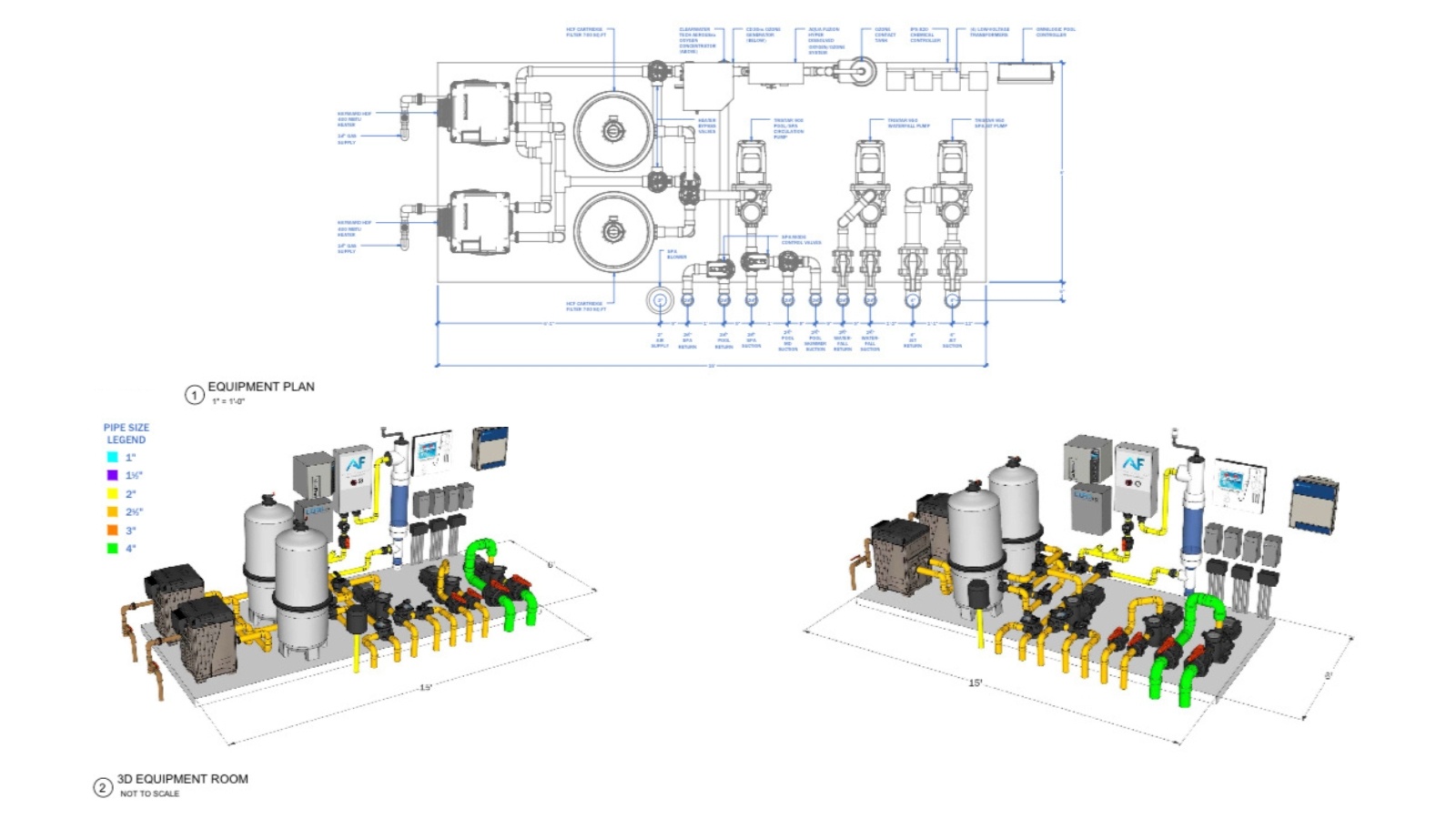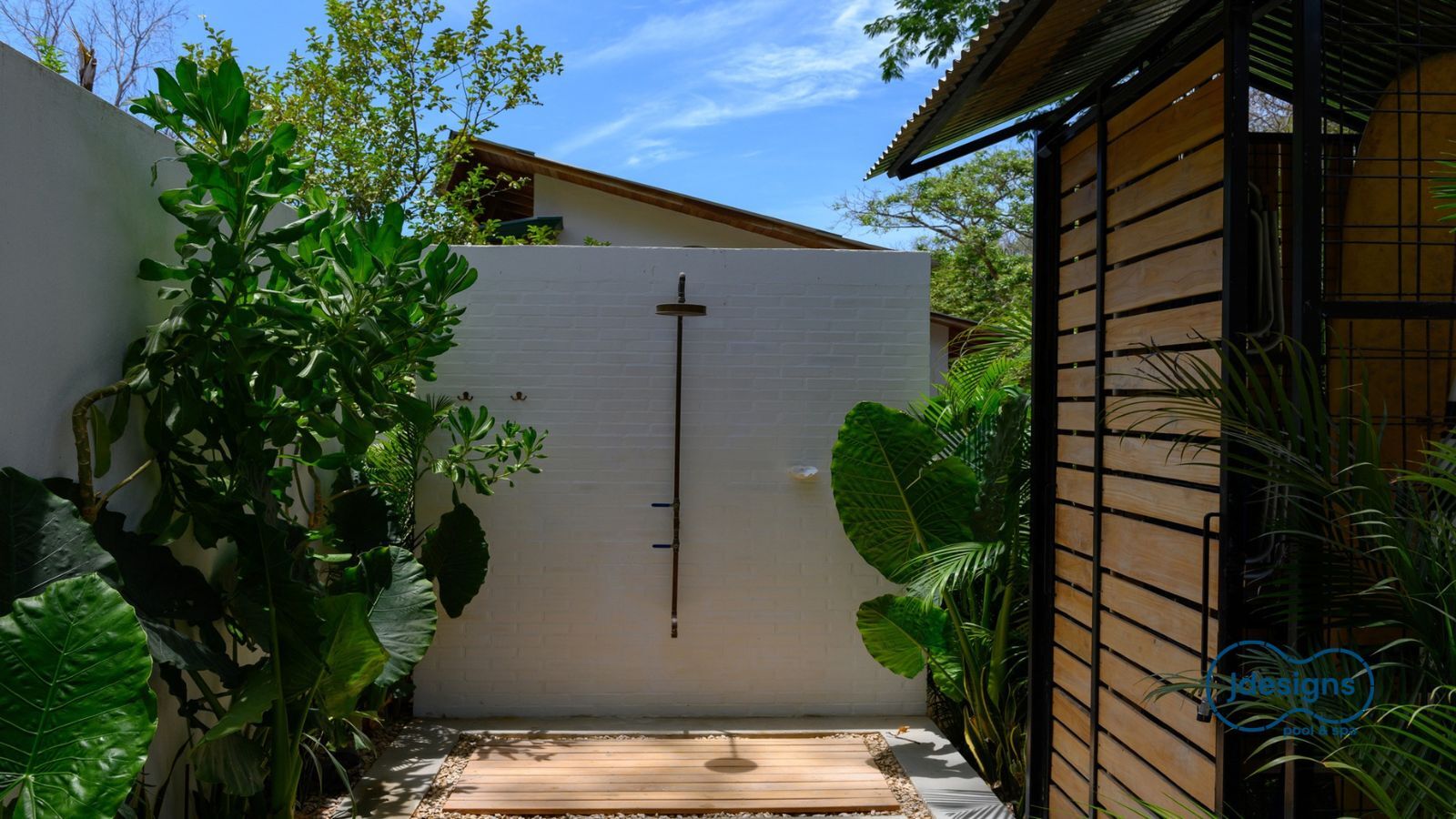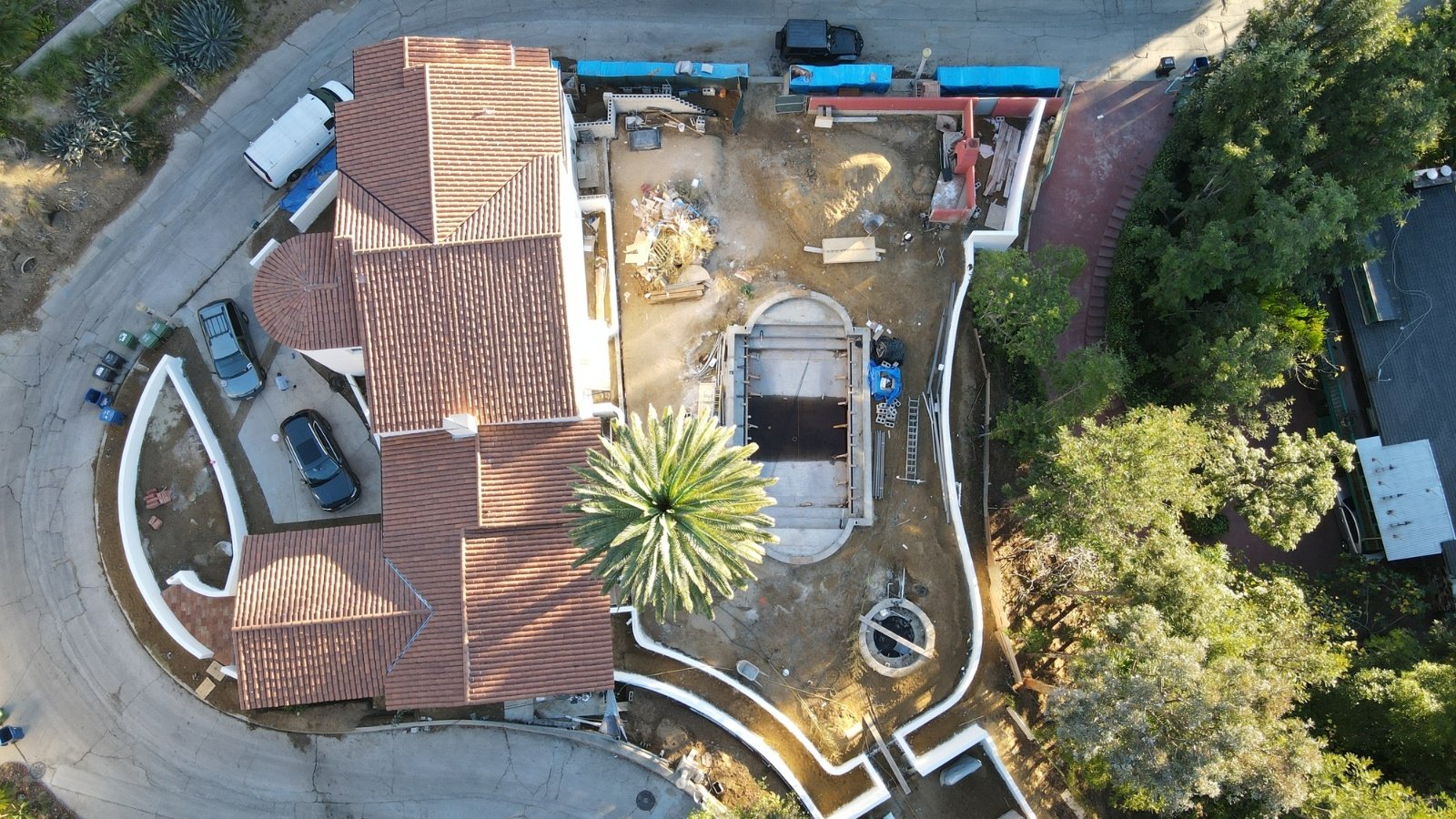Top Pool Builders in Los Angeles: Reviews, Ratings & Comparison
Are you worried about choosing the wrong pool builder, and ending up with a project that drags on for months, blows past your budget, or leaves you...
4 min read
JC Escudero : August 16, 2024

Owning a swimming pool is a luxury; proper maintenance ensures a clean and enjoyable environment. Are you finding it challenging to keep your pool water crystal clear and safe for swimming? Understanding the critical components of your pool’s system can make all the difference. This guide will demystify the essential systems—from circulation and filtration to smart automation—that keep your pool in top condition, making pool maintenance simpler and more effective.
At the heart of every swimming pool's functionality lies its circulation and filtration systems, both vital for maintaining the clarity and hygiene of the water. Imagine the circulation system as the pool’s cardiovascular system, constantly moving water through filtration. This movement is essential, as stagnant water can quickly become a breeding ground for bacteria and algae. By keeping the water in motion, the circulation system helps ensure that all areas of the pool are reached, preventing dead zones where contaminants can accumulate.
The filtration process works hand-in-hand with circulation, acting as the pool's kidneys by filtering out impurities. Water is pushed through a filter medium that captures debris, from leaves and dirt to microscopic particles that are invisible to the naked eye. This process is crucial for maintaining a healthy and inviting pool environment. Regularly monitoring and maintaining your filtration system can help prevent clogs and ensure your pool remains a sanctuary of clear, sparkling water.

 The pool pump is the powerhouse of your pool’s circulation system, responsible for drawing water from the pool, pushing it through the filtration system, and returning it to the pool. This process keeps the water moving and ensures it stays clean and well-maintained. The pump consists of three key components: the lint trap, the impeller, and the motor. The lint trap catches larger debris like leaves and twigs before they can enter the pump and cause damage. The impeller, a rotating component, then propels the water through the system with precision. Finally, the motor powers the entire operation, ensuring consistent water flow.
The pool pump is the powerhouse of your pool’s circulation system, responsible for drawing water from the pool, pushing it through the filtration system, and returning it to the pool. This process keeps the water moving and ensures it stays clean and well-maintained. The pump consists of three key components: the lint trap, the impeller, and the motor. The lint trap catches larger debris like leaves and twigs before they can enter the pump and cause damage. The impeller, a rotating component, then propels the water through the system with precision. Finally, the motor powers the entire operation, ensuring consistent water flow.
Understanding how your pool pump works is crucial because it directly impacts the efficiency and longevity of your entire pool system. A well-maintained pump ensures that the water circulates appropriately, reducing the risk of algae growth and keeping the pool water safe for swimming. Regular maintenance, such as cleaning the lint trap and checking the motor, can prevent costly repairs and extend the life of your pump. By investing time in understanding and maintaining your pool pump, you can enjoy knowing your pool is in good hands.

The pool filter is an unsung hero in the quest for pristine pool water. Its job is to remove impurities from the water, including dirt, debris, and microscopic contaminants. The filter medium, made of sand, diatomaceous earth, or cartridges, traps these particles as water passes through it, leaving clean, clear water behind. This process not only improves the pool's appearance but also plays a critical role in maintaining the health and safety of the swimmers by removing harmful bacteria and algae spores.
Regular maintenance of the pool filter is essential to ensure its effectiveness. Over time, the filter medium can become clogged with debris, reducing its ability to clean the water. To prevent this, regularly cleaning or replacing the filter medium is essential. A clean filter helps maintain optimal water flow and prevents strain on the pump, contributing to your pool system's overall efficiency and longevity. By staying on top of filter maintenance, you can ensure your pool remains a welcoming and safe environment for everyone to enjoy.
The allure of a warm pool is hard to resist, especially when it allows you to extend your swimming season beyond the summer months. Several heating options are available, each with its own set of advantages. Natural gas heaters are famous for their efficiency and ability to raise the water temperature quickly. However, if you're looking for a more environmentally friendly option, consider a solar heater, which uses the sun's energy to warm your pool. Electric heaters and heat pumps are also available, balancing efficiency and cost.
Choosing the right heating option for your pool depends on several factors, including your budget, climate, and environmental concerns. For instance, while natural gas heaters are effective, they can be costly to operate over time. On the other hand, solar heaters are more sustainable but require a significant upfront investment. Whichever option you choose, integrating a heater into your pool system can significantly enhance your swimming experience, allowing you to enjoy warm, comfortable water at any time of year.
In today’s fast-paced world, convenience and efficiency are more important than ever, and pool care is no exception. Automation and intelligent pool technologies have revolutionized how we manage and maintain pools, offering a level of control and ease that was unimaginable just a few years ago. These systems allow you to monitor and manage your pool’s components—filters, heaters, and lighting—from your smartphone or tablet. With a simple swipe or tap, you can adjust settings, monitor chemical levels, and even schedule maintenance tasks without leaving the comfort of your home.

The benefits of intelligent pool technology go beyond convenience. By automating routine tasks and monitoring your pool’s systems in real time, you can ensure that your pool is always in optimal condition, reducing the risk of issues and extending the life of your pool equipment. Additionally, these technologies can help you save energy and water, making your pool more environmentally friendly. Investing in intelligent pool technology is not just about keeping up with the latest trends—it’s about taking control of your pool care and enjoying a cleaner, safer, and more enjoyable swimming experience.
Maintaining your swimming pool doesn't have to be a daunting task. By understanding the key components—circulation and filtration systems, pumps, filters, and heaters—you can take control of your pool’s health and ensure it remains a safe, clean, and enjoyable space for you and your family. As you continue to explore ways to enhance your pool care routine, consider integrating automation and smart technologies to simplify maintenance and improve efficiency.
Your next step is to delve into advanced pool care tips or schedule a professional maintenance check to keep your pool in peak condition all year round. Want to dive deeper into pool maintenance? Check out our article on The Ultimate Guide to Pool Water Chemistry to ensure your water is always perfectly balanced and safe.
Are you curious how new sanitation methods can further simplify pool care? Alternative Pool Sanitation Methods for a detailed look at the latest innovations.

Are you worried about choosing the wrong pool builder, and ending up with a project that drags on for months, blows past your budget, or leaves you...

Water has always been more than a way to get clean; it’s how people reset and reconnect with their surroundings. From Japan’s misogi to the Turkish ...

Building a luxury pool is a significant investment, one that should deliver both beauty and peace of mind. Yet, even the most impressive projects can...